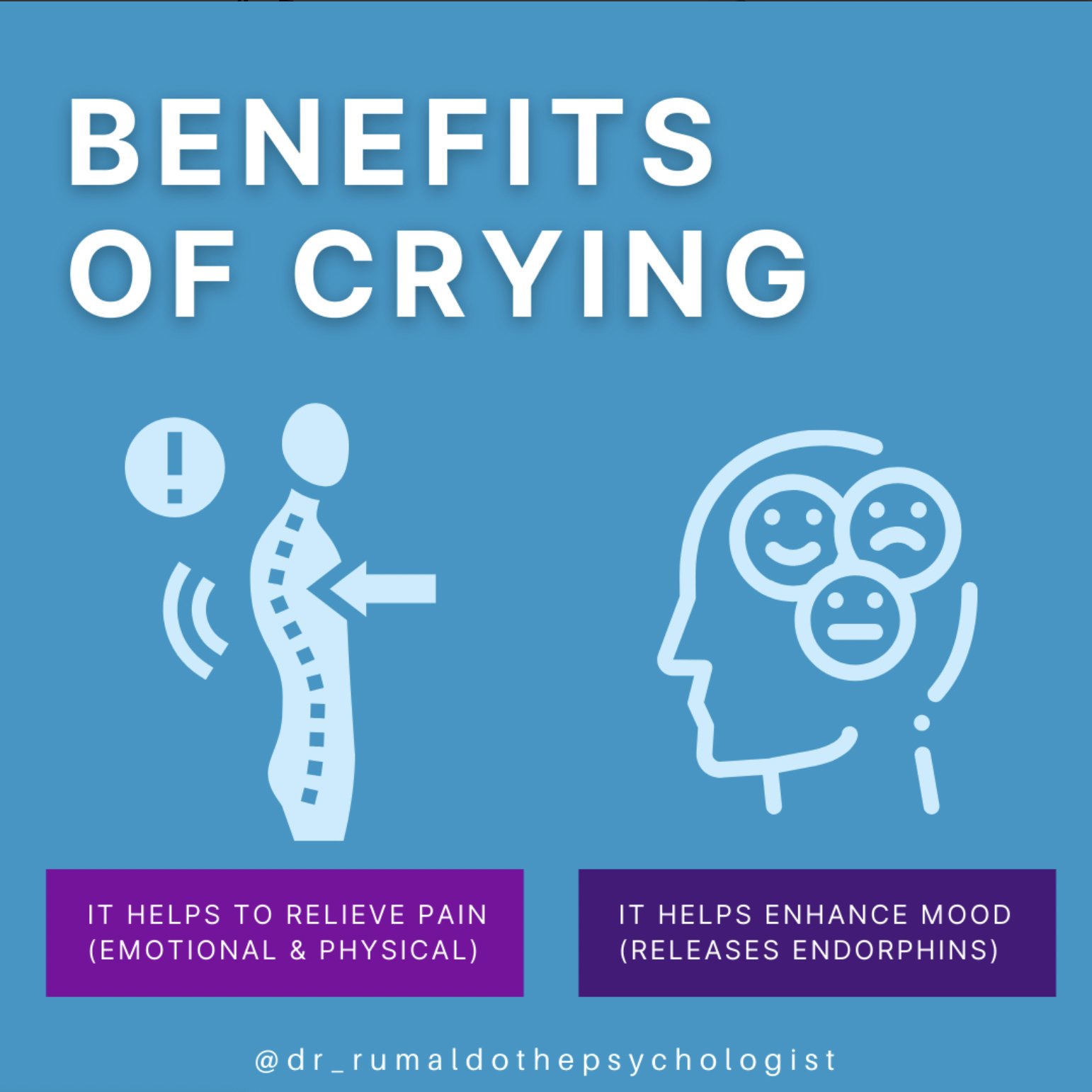Emotions are extremely common in our everyday lives; however, how important are these feelings in our lives? As it turns out, emotions are extremely important to our mental health; both positive and negative emotions can actually help to increase a person’s mood as well as decrease the feeling of stress.
Letting Out the Tears
The majority of people believe crying to be extremely negative, society even creating toxic stereotypes such as the common “Boys Don’t Cry” phrase. Many people try to tell others to not cry and to just cheer up when they’re down, but is crying really a bad thing?
Surprisingly, crying can help to improve your mood. Harvard Health Publishing in the article “Is crying good for you?” tells us that, “Researchers have established that crying releases oxytocin and endogenous opioids, also known as endorphins. These feel-good chemicals help ease both physical and emotional pain”. Although many people cry out of grief and stress, crying actually works to combat this. Oxytocin and endorphins are two hormones the brain releases to trigger a positive emotion, ultimately making you feel happier. Crying is a perfectly natural response to combat stress and grief, allowing your mind and body to properly process what you are going through. While it may not feel great in the moment, crying will definitely help one to feel better in the long run.

Forcing a Smile
On the opposite end of the spectrum, smiling is also a way to reduce stress through feel good hormones. In the article “The Health Benefits of Smiling”, SCL Health states that, “When you smile, your brain releases tiny molecules called neuropeptides to help fight off stress. Then other neurotransmitters like dopamine, serotonin and endorphins come into play too”. Just like crying, the release of these hormones can improve our mood, ultimately decreasing the stress we feel. Smiling comes with a multitude of other benefits too, the article “Smiling can trick your brain into happiness — and boost your health” by Nicole Spector informing us that, “Researchers at the University of Kansas published findings that smiling helps reduce the body’s response to stress and lower heart rate in tense situations; another study linked smiling to lower blood pressure, while yet another suggests that smiling leads to longevity”. As important as smiling is to our mind and body, we don’t always feel happy and upbeat. So what do we do then?
Astonishingly, this concept also works when forcing a smile. Nicole Spector writes about this as well, commenting that “smiling can trick your brain into believing you’re happy which can then spur actual feelings of happiness.” Even fake smiles can trigger the release of neuropeptides, endorphins, dopamine, and serotonin, causing us to feel better and for our mood to automatically increase. Making a habit of smiling, even if it’s sometimes fake, can change an individual’s mental mindset as well. Smiling helps you stay positive and energized, and people who do this often see less burnout in the long run.
Not only can smiling decrease our own stress, it can work to combat the stress of others as well. Smiling is contagious, meaning that if you smile, the people around you are more likely to as well. This means that smiling not only makes you feel happier, it brightens the moods of the people surrounding you, whether it’s a friend you see everyday or just a stranger walking past you on the street.

So despite what others may say, releasing emotions is a very healthy part of human life. Suppressing your feelings and bottling them up can do more harm than good in the long run, so next time you feel an emotion bubbling to the surface, remember that sometimes it can be good to just let it out.
I feel like these posts on stress are very timely, considering that we are all advancing further into our first semester in college. I find it interesting how you have discussed stress reduction techniques from a variety of sources, whether they use external tools (e.g., music or journals) or they are entirely internal. I hope that you continue this pattern in future posts.
I find your section on crying to be intriguing. I hadn’t known that crying had some benefits to it. I’ll need to look into that more. However, I’m privy to the benefits of smiling (despite not doing it too often myself). My mother has been on my case about that for a long time now. I’m interested to learn more about crying (that sounds a little odd out of context). This was a fun read.
That’s really interesting that forcing a smile is shown to boost one’s mood. I always feel worse when I have to force a smile to hide the fact that I’m in a bad mood.
As a psychology major, I loved this post and how it highlights the importance of releasing emotions. And as a college student, I am willing to try any (healthy) way of coping with stress. When I am in a bad mood I try to force myself to “flip the switch” and as almost impossible as that seems sometimes, it often works. I will definitely be trying the “force a smile” method in the future. I can’t wait to see where you take the next post!